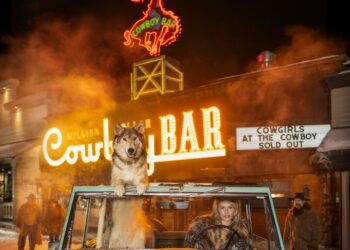By Todd Wilkinson EBS Environmental Columnist
When it comes to natural resource management, academia teaches students a number of applicable skills. At forestry school, a pupil can learn how to cut trees for the U.S. Forest Service and turn them into wood products. If one is a biologist, she might learn how to lay out research transects, plot the reproduction rate of a wildlife population or know the intricacies of using GPS technology to track mule deer movements.
Colleges and universities are great at imparting practical technical skills. What they aren’t very adept at—and what they’ve failed to do for a long, long while—is prepare natural resource employees, stewarding our public lands and wildlife, for how to navigate the sometimes-brutal real world.
I’m not talking about the natural world that serves as their office; rather, it’s the political realm rife with buzz saws; the socio-economic realm that treats them as the enemy; and the realm involving personal character and tough choices that many bright-eyed young professionals aren’t ready to confront.
Pioneering ecologist Aldo Leopold even mentioned it in his classic, “A Sand Country Almanac.”
It is here, in these realms, where good people can be made cynical by bad bureaucratic behavior and political intimidation; where careers and lives are destroyed; where information is suppressed, and dissenters silenced; where ethical and moral lines are crossed in the name of keeping a job.
A quarter century ago, I began writing a book about whistleblowers titled “Science Under Siege: The Politicians’ War on Nature and Truth.” It tracked the experiences of nearly two dozen different natural resource employees working for federal and state agencies in the West.
Many of the stories that ended up being told were tragedies, for they involved the ruination of decent people who signed up to work for government agencies because they loved nature, felt a calling to steward natural resources on behalf of us, and had romantic notions of what a career as a scientist or field person would entail.
But when they spoke up, challenging decisions that were wrong or corrupt, they were retaliated against, muzzled, forcibly transferred or turned into pariahs.
This week I am in Washington, D.C. and decided to stop by the office of a man who is a whistleblower expert. Attorney Thomas Devine was one of the people who inspired the writing of my book which came out in the late 1990s.
Devine works as legal director for a non-profit group called the Government Accountability Project.
Devine and I rendezvoused there following a trek he made to Capitol Hill. In February 2017, just weeks into the Trump administration, Devine testified before Congress seeking to strengthen a law called the Whistleblower Protection Act, a statute that has resulted in exposing billions of dollars in government fraud and waste, preventing environmental disasters, protecting public health, and getting better medical treatment for U.S. soldiers.
Two years ago, Devine told of how the Obama administration, while generally good in tolerating dissenters inside government agencies on the home front, was the opposite in harassing those involved with intelligence agencies.
“Whistleblowers risk their professional survival to challenges abuses of power that betray the public trust. This is freedom of speech when it counts, unlike the freedoms akin to yelling at the referee in a sports stadium, or late night television satire of politicians and pundits,” he wrote in his testimony. “It not only encompasses the freedom to protest, but the freedom to warn, so that avoidable disasters can be prevented or minimized. It also encompasses the freedom to challenge conventional wisdom, such as outdated or politically-slanted scientific paradigms. In every context, they are those who keep society from being stagnant and are the pioneers for change. “
Devine said that initially Trump seemed sympathetic to whistleblowers, but the president’s tenure has been punctuated by putting people in place from whom he demands absolute loyalty.
As a group, they take a dim view of anyone who criticizes them. Based on the cases Devine has handled and what he’s heard via the grapevine, he says civil service ranks throughout government are wary of saying anything that might be construed as disagreement. Morale in most agencies has tanked.
Reflecting on what Devine told me, there is a person I know in Greater Yellowstone who has steered me to employee satisfaction surveys that measure the supposed level of contentment among those who work in government agencies.
This individual is convinced that morale inside agencies like the National Park Service, U.S. Forest Service, Bureau of Land Management and U.S. Fish and Wildlife Service is high. That doesn’t comport with what my sources inside those agencies are telling me. There is an atmosphere of overt hostility being directed at conservation-minded civil servants.
There is fear, whether it involves mentioning climate change; calling attention to wildlife habitat that resides in areas being targeted by private energy companies; confronting Chronic Wasting Disease; or even national park superintendents who refuse to violate their sense of mission to accommodate political appointees in the Trump administration.
“Never has there been a time when whistleblowers are more impactful,” Devine told me. “Never have their rights been stronger and never have they been more popular among citizens. But, at the same time, never has it been more dangerous to blow the whistle.”
I’ll be exploring in future columns the ways that political pressure has prevented public servants from speaking the truth.
Todd Wilkinson is founder of Bozeman-based Mountain Journal (mountainjournal.org) devoted to protecting the Greater Yellowstone Ecosystem and a correspondent for National Geographic. He also is author of “Grizzlies of Pilgrim Creek” about famous Jackson Hole grizzly bear 399 available only at mangelsen.com/grizzly.















